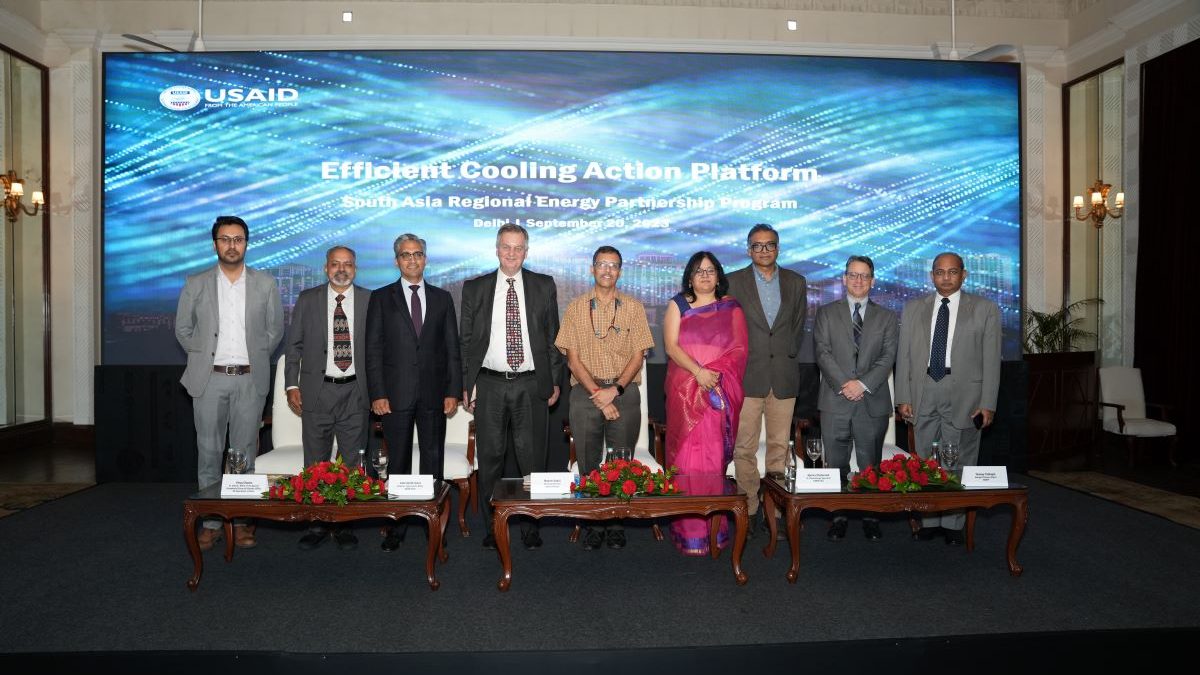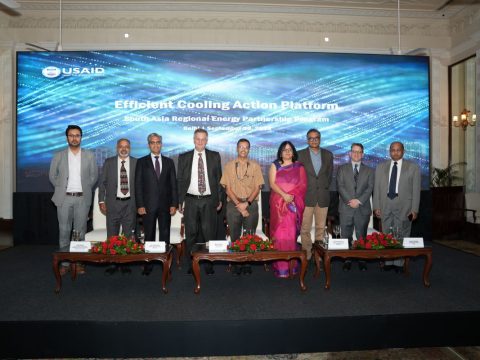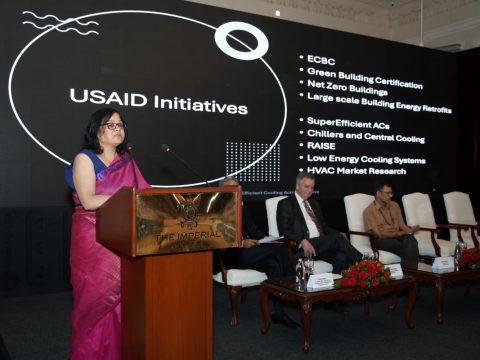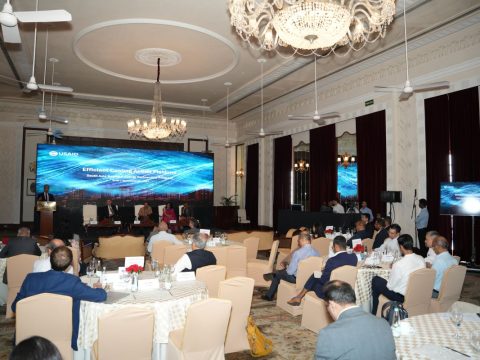Global call for action is necessary for facilitating the widespread adoption of sustainable solutions to cater to the rising cooling demand. In this context, developing a platform for efficient cooling is critical to address the pressing need for reduced energy consumption and mitigating the environmental impacts associated with cooling systems.
USAID, through its regional energy program SAREP organised a roundtable on ‘Efficient Cooling Action Platform’ on September 20, 2023 at The Imperial Delhi, to foster a collaborative dialogue among the representatives on innovative technologies, scalable business models and financing opportunities for advancing cooling initiatives.
This first in the series of events planned to develop an Efficient Cooling Action Platform brought together key stakeholders from government, international agencies, industry, and end-users to discuss the pressing issue of cooling. The event was graced by distinguished speakers who shed light on the growing global demand for cooling, its implications for energy consumption and the environment, and USAID’s role in fostering collaborations to address these challenges.
In his welcome remarks, John Smith Sreen, Director- Indo-Pacific Office, USAID India talked about the growing global demand for cooling, and its impact on environment. He highlighted USAID’s role in building collaborations partnerships, citing the initiatives at EESL and Indian Railways as examples. He also welcomed the insights from experts on the cooling platform organized by USAID.
Apurva Chaturvedi, Sr. Clean Energy Specialist, USAID India & Tanmay Tathagat, Energy Efficiency Expert, USAID SAREP made a joint presentation on Introducing USAID/SAREP and its interventions focused on cooling. They introduced the proposed platform titled “Low Carbon Comfort and Cooling Coalition” (LC4). The platform is designed with two aspects: reduce cooling demand and carbon intensity of cooling.
Vinay Chawla, Senior Advisor from the Office of the Special Presidential Envoy for Climate (SPEC) at the US Department of State, emphasized on the unique opportunity for US-India collaboration in addressing cooling challenges and stressed the critical role of financing in making sustainable cooling solutions accessible.
Manish Gupta, Executive Director of Indian Railways in his special address, highlighted the importance of energy efficiency in achieving railways’ commitment to NetZero by 2030. He discussed the surge in energy demand due to increased cooling needs in different railway buildings across India and highlighted the pilots being planned by Indian Railways on low carbon cooling technologies.
Post the inaugural remarks, the event witnessed a moderated discussion on Scalable Action on Efficient Cooling with participants from Bureau of Energy Efficiency, Energy Efficiency Services Limited, National Thermal Power Corporation, Global Energy Alliance for People and Planet, Carrier, Taj Hotels, Lemon Tree Hotels, Medanta Medicity and others.
Key Speakers like Dr Satish Kumar from Alliance for an Energy Efficient Economy congratulated USAID SAREP for the initiative and shared invaluable comments on space cooling based on his experience of having worked on ICAP and Global Cooling Price etc. Harsh Wardhan Pant from RAMA stated that innovations will succeed only if we understand what the consumers want. The speakers also highlighted that the platform such as LC4 can help build collaborations and uniform approach between both public and private institutions towards transitioning to sustainable cooling practices that can significantly enhance building energy efficiency.
Bhaskar Rajah, Energy Advisor, USAID India shared the summary and way forward and added that there can be an energy productivity index with energy per rupee energy in future. He highlighted that the key ingredients that are required for success of this inclusive platforms is agreement on key decisions, clear targets identified for role players and their involvement without prejudice. He thanked the participants for the excellent ideas shared and ended with a note to continue the discussion.
As the world grapples with the growing demand for cooling, initiatives like the USAID LC4 platform will play a pivotal role in shaping a more sustainable and energy-efficient future in South Asia.
Agenda:






